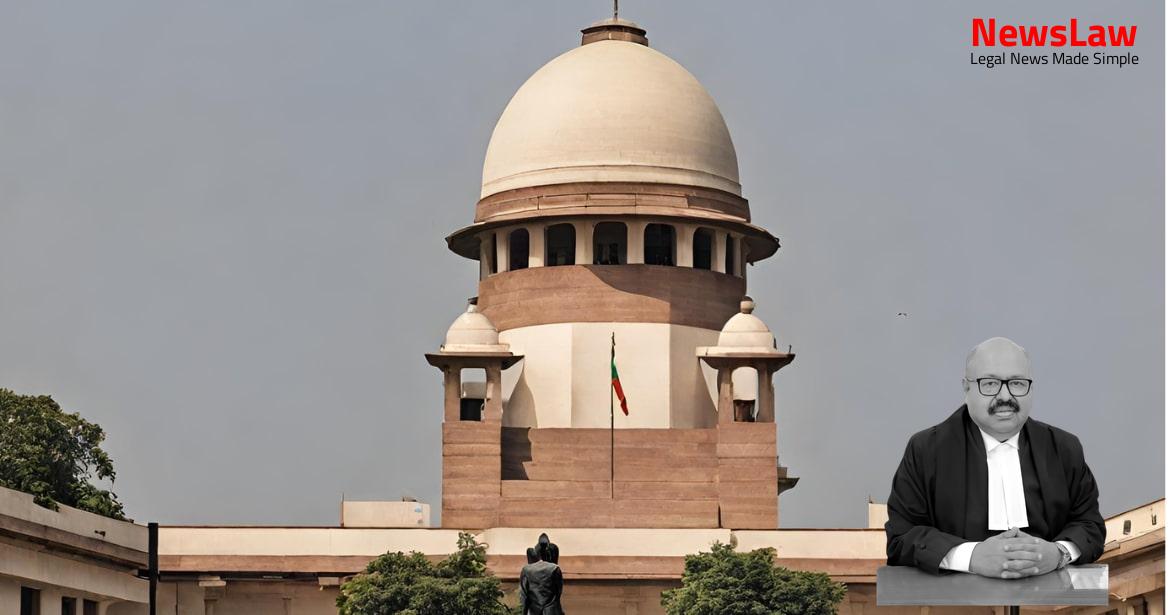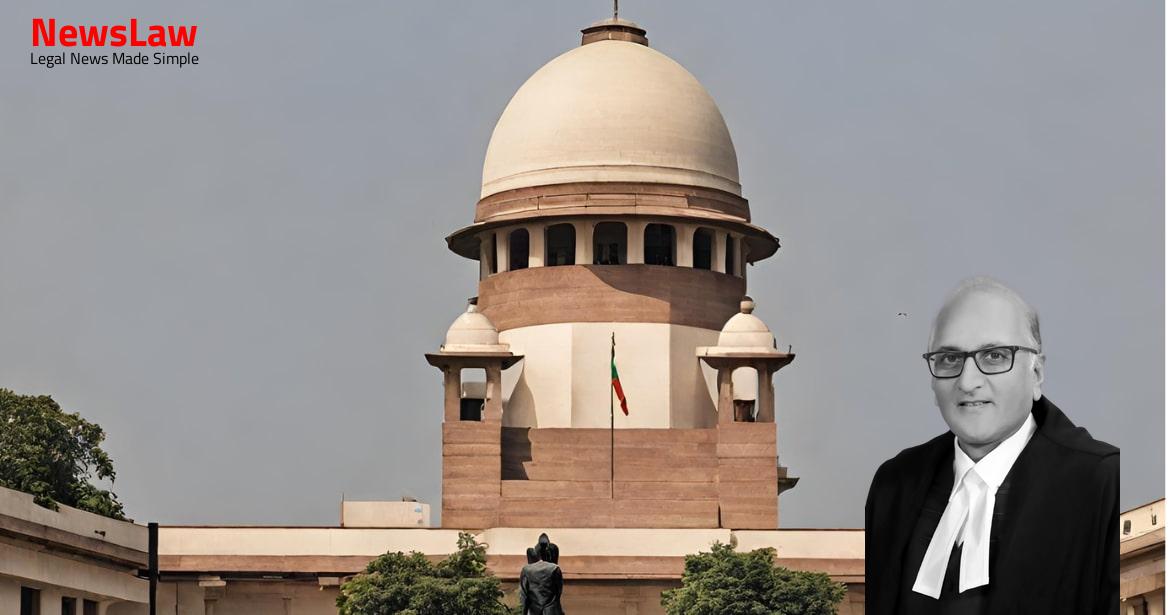Delving into the nuanced legal analysis of employee liability in contractual disputes, this summary focuses on the interpretation of the Consumer Protection Act and the obligation of entities for the actions of their employees. The court’s emphasis on the binding nature of employee acts during employment and the significance of fair treatment under the Act sets the tone for a comprehensive understanding of such legal intricacies.
Facts
- Respondents No 2 and 3, employees of respondent No. 1, approached the appellant in August 2005.
- Appellant needed a home loan.
- Complaint filed by the appellant was dismissed.
- NCDRC concluded that the appellant is bound by terms of agreement dated 11.01.2006, while respondent was bound by RBI instructions at the time of signing the agreement.
Also Read: Supreme Court Upholds Rejection of Plaint Under Order VII Rule 11 of CPC: A Critical Analysis
Arguments
- Appellant approached Consumer Forum alleging increase in interest rate by respondent No. 1 despite no change by RBI in Prime Lending Rate
- Appellant claimed assurance from respondent No. 2 on interest rate based on RBI’s Prime Lending Rate
- Legal notice sent demanding return of excess interest charged
- Respondent No. 1 contended adjustable rate of interest chosen by appellant in agreement, linked to RBI’s rate changes
- Appellant relied on email as evidence of assurance on interest rate by respondent No. 2
- Appellant compared interest rates with ICICI Bank based on representations made by respondents
- Loan disbursed in instalments to DLF Universal Ltd. between January 2006 to December 2007
- Pre-contractual correspondence may not hold significance once a contract is formed.
- The decision in Board of Trustees of Chennai Port Trust v. Chennai Container Terminal Private Ltd. highlighted this issue.
- The case emphasized that in India, a rigid approach like in English jurisprudence may not be feasible due to diverse languages and backgrounds of the contracting parties.
- There may be instances where parties with different linguistic backgrounds reach a contract in a foreign language, complicating the application of strict rules regarding pre-contractual correspondence.
Also Read: Validity of Debt and Enforcement of Section 138 NI Act
Analysis
- Post office and banks have the right to proceed against officers for loss due to fraud, but officers remain liable if acting within their employment duties.
- Acts of employees during their employment are binding on the entity they represent in case of fraud or wrongful acts.
- Legal remedy can be sought by aggrieved parties against the post office for actions of its employees.
- Court rulings in cases like Pradeep Kumar v. Postmaster General and Debashis Sinha v. R.N.R. Enterprise emphasize the liability of entities for actions of their employees.
- The Consumer Protection Act, 1986 mandates fair treatment of consumers and appropriate relief in cases of unfair trade practices.
- Employees, as individuals, can engage in dishonest or fraudulent behavior either alone or in collusion.
- The appellant is not considered illiterate and is viewed as worldly wise.
- The Consumer Protection Act grants the authority to declare unfair contract terms null and void.
- The terms agreed upon in the signed agreement hold precedence over any email communication between the parties.
- The agreement specifies an Adjustable Interest Rate (AIR) linked to HDFC’s retail prime lending rate.
- The court opinion rejects the appellant’s claim based on precedents cited.
- The rate of interest charged is determined by HDFC’s policy and may not be case-specific.
- The appellant applied for the loan on a specific date, triggering the terms of the agreement.
- The debate revolves around whether the interest rate is based on RBI’s decisions or HDFC’s rate for the loan.
- A comparison of interest rates was provided by HDFC to demonstrate benefits to the appellant.
- The NCDRC is expected to intervene if promised amenities from the respondents are not provided.
- Appellant repaid loan with interest as per agreement, cannot seek refund.
- Appellant should have raised objections before signing agreement if misled.
- Having agreed to terms, received loan amount, appellant cannot object later.
- Appellant cannot claim unfair trade practice without evidence of better alternative.
Also Read: Enlargement on Bail in Illegal Mining Case
Decision
- Pending application disposed of
- No error in NCDRC order
- Appeal dismissed with no order as to costs
Case Title: RAJESH MONGA Vs. HOUSING DEVELOPMENT FINANCE CORPORATION LIMITED (2024 INSC 162)
Case Number: C.A. No.-001495 / 2023



